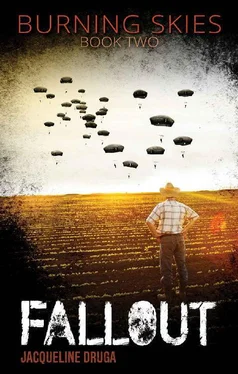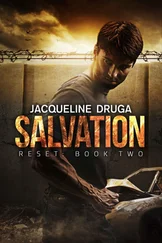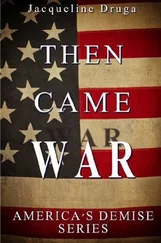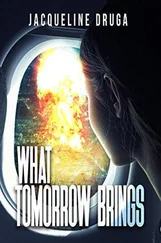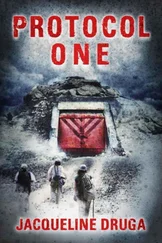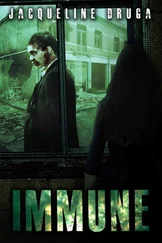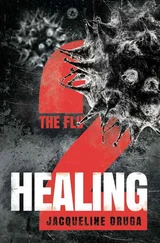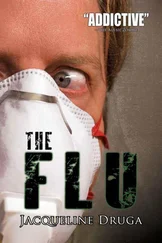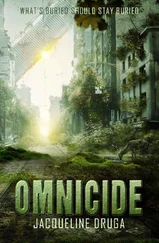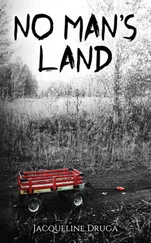When word arrived that there was a domestic terror attack taking place, the first thing he did was seal the base. It was NORAD and the USNORTHCOM, the end-all-be-all, top-dog military installation. Then as he dismissed it as something they could handle, things turned and he received intel that perhaps a foreign entity was also involved. When that occurred, whether it was true or not, the first order of business, after the base, was to move ships and subs. The biggest line of defense for the United States was stationed outside of Bangor, Washington, and General Welch made sure they were a position to defend their country.
He’d listened and was impressed as Lieutenant Colonel Gilbert in Alaska successfully intercepted as many incoming missiles as they could, then Welch ordered Gilbert to seal his base as well.
Typically, the base would have emptied out roughly a hundred people, but the domestic hit came just before the end of the work day and Cheyenne Mountain had over three hundred people inside.
It was command central for missile control with blast doors that were made to withstand a nuclear explosion. That never came, but the invasion did.
Outside of Cheyenne was a war zone.
Soldiers took up arms and the battle was continuous. The Chinese invaders wanted in. There was a report that as many as seven thousand Chinese soldiers were trying to break the doors. They blasted them constantly.
The mountain was the flag and Welch’s job was to protect that flag at all cost.
Ammunition was running low, and while confidence was high they couldn’t get in, Welch still worried. However, from inside he did what any good military leader would do, he prepared for the war and charted a plan. He was in constant contact with many resistance outlets.
Eventually, he believed they would flip the switch, and that wasn’t far off. A long-time soldier, Welch knew there were mistakes made by the Chinese in their quest to take over America. Mistakes he would use to his advantage.
Their invasion against America was badly planned.
Paul Regal was a journalist assigned to cover the war games military exercise. He wasn’t seasoned so when everything occurred, Paul panicked and stayed close to the general. He asked a million questions, not for a story, but to be informed.
Within days, however, he was becoming an expert.
The general kept him informed and Paul helped the general, almost as an assistant.
“Where are they now?” the general asked a specialist who manned the control panel.
“In position, sir.”
“Tell them to keep moving, we don’t need them picked up. We want them ready though.” Welch turned and faced Paul. “I got them where I want them, I can’t do anything yet. Diversion, liberation has to occur first.”
“What about what’s happening with the enemy outside?” Paul asked.
“That’s annoying. We need them out of the way to get our men and planes out there.” The general huffed. “Almost like a stand still. Wish to God, I could just utilize the nine. But all in due time.”
“The nine?” Paul asked.
“My esteem fleet. Do you know what the great thing about Ohio-class subs is?”
Instead of Paul, the specialist answered. “Anyone that read a Tom Clancy novel knows what is special about them.”
“True.” The general chuckled.
“I don’t,” Paul said. “What’s so special?”
“They are the most destructive force created by humankind. Each of those subs carries twenty-four Trident II submarine-launched ballistic missiles that can be fired under water and reach a target seven thousand miles away. When a missile enters the atmosphere, it’s firing in at Mach 24 and splits into eight different missiles. Son, we’re talking a hundred and ninety missiles per sub, can wipe out a couple dozen Chinese cities in an instant. We got nine of them subs out there, waiting and ready to go.”
“Jesus,” Paul said. “What happens when you fire them? What will the Chinese do?”
“Nothing.” Welch nodded. “They have most of their forces out at sea and here. Who’s watching the farm, right? They don’t have the fire power to intercept or retaliate. Nor would they send anything over here with their payload digging in. It’s all about the grain, we got the grain here, they won’t destroy what’s left. However, they may not have the payload, but we do. That’s why they need to take this base so badly.”
“So, you’re going to hit them hard here then hit them hard there?” Paul asked.
“That’s the plan. But our hands are tied. We need to get out there and off this base. I’m just waiting right now for word that we all gonna clear the field.”
“Sir,” the specialist called out, holding a phone. “I got him. It’s a secure line.”
Hurriedly, Welch snatched the phone. “Mr. President,” he said. “This is General Welch. Com Headquarters. Yes, sir. Tell me you’re going to bring a little vodka to the party.” Welch clenched his fist and smiled. “Yes, sir, thank you. We will be in touch.” He handed the phone to the specialist. “Tell our men outside to pull in. Those who remain out there, mask up.” His eyes went to the map. “In one hour, this shit outside is about to end.”
Swall, CA – San Joaquin Valley
The zoning committee, as Joe called them, were all working at a steady and freakishly unison pace. He needed a general foreman, someone he could say to, “Hey, I’ll be right back.” But he didn’t think any of them would even notice if he did leave.
Joe wanted to check on Saul, see how he was doing with his workers and he wanted to tell him about Greg. A part of Joe wondered what the death by skirmish meant. Maybe he’d get a chance to talk to Mary Lou without the presence of soldiers. He blamed that on her odd behavior, but what of his workers. If Joe didn’t know better, he would have sworn they were all brainwashed.
He didn’t know if it was his workers or all farm workers, and that was another reason he made his way to Saul’s.
He tried at first reaching him by phone but there was no answer. When he arrived at Saul’s he could see the workers in the field, only specks of them as they moved, bent over picking the berries.
After parking directly in front of Saul’s Joe honked the horn, stepped from the truck, and honked again.
“Hey, Saul?”
Saul appeared at the screen porch door. He didn’t step out, staying inside and was shadowed. “Come on in.”
Saul left the door and Joe walked up to the porch and in.
“I saw your workers out there,” Joe said as he walked in. “How they doing you?”
“Good,” Saul’s voice came from the kitchen. He then coughed.
“Don’t know about yours, but mine are like robots.”
“Mine, too.” Saul coughed again.
“So, I went to town to drop off my quota.” Joe walked to the kitchen. “Everyone is all dazzled up in their Sunday best. Seems it’s a new rule…”
Saul stood at the stove, back toward Joe. He coughed about three or four times in a row.
“You okay?”
“Yeah, got some sort of bug. Go on.”
“Anyhow, I saw Mary Lou Martin. Perky as a peacock and Greg died four days ago.”
“Yeah, I heard.”
“She said there was a skirmish.”
“Skirmish hell,” Saul said. “He wanted them off his farm and they shot him.”
“Goddamn it, was it worth it?”
“To him it was.” Saul fixed a cup and turned around.
“Jesus!” Joe said in shock. “You are sick.”
Saul’s face was pale, his eyes dark, and he had raw looking sores around his mouth and nose.
“I feel like crap.”
“You look it. Is that the herpes on your mouth?”
“No!” Saul barked and walked toward the table. “It’s cold sores. They started last night. Hurt like a bitch.” He paused to cough. “Got them on my hands, too. Did you want tea?”
Читать дальше
